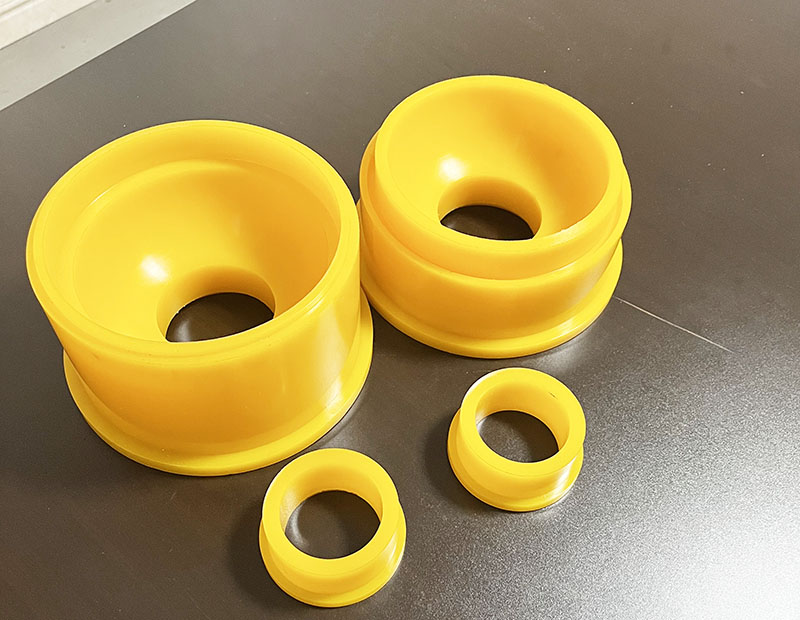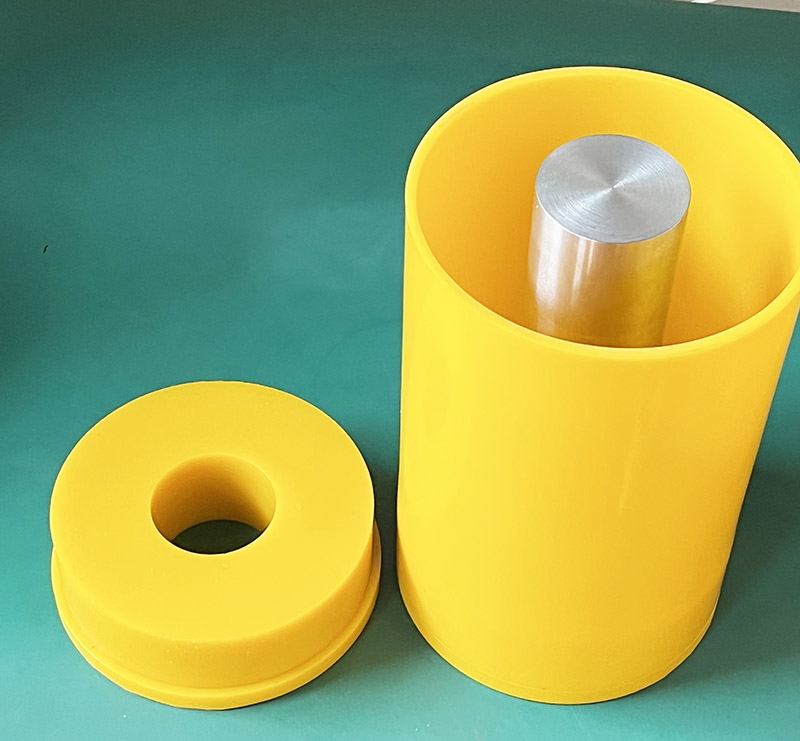

Wet-bags Cold Isostatic Pressing
In wet-bag pressing, the mold is filled, evacuated (if this step is used), and sealed outside the pressure vessel. Because these operations occur in a powder-handling area, contamination of external mold surfaces with metal powder can easily occur. Introduction of dirty molds into the vessel results in working fluid contamination with long-term effects similar to mold tearing and gross metal powder spillage. Thorough mold washing as an integral part of the process flow chart is necessary to keep the process fluid system clean. Filled molds are stacked on a rack that serves as handling tooling for loading molds into the vessel. In normal practice, the vessel is not fully emptied of working fluid (most commonly water with corrosion preventative additive) between pressurization cycles. This means that even with an external filtering system for that portion of the working fluid that is cycled in and out of the vessel, a major fraction of the working fluid remains in the vessel and may accumulate traces of metal powder introduced in each process cycle. Depending on usage rate, periodic complete draining and cleaning of the vessel is necessary to maintain the highest level of working fluid cleanliness.
The wet-bag process is flexible in that it can be adapted for large shapes limited only by vessel dimensions or multiple small shapes that can be stacked in a loading rack for a single process run. With a given metal powder that establishes the required process pressure, a mix of mold sizes and shapes can also be processed as a single batch, thereby utilizing the flexibility of the process. The requirement for mold support tooling must be determined for each configuration. Currently, when CIP is used for P/M applications the wet-bag process is usually selected.



We support all kinds of customization, if you need it, please contact us.
Phone/whatsapp:+86 18234744811
Email:sales@highindustryco.com









